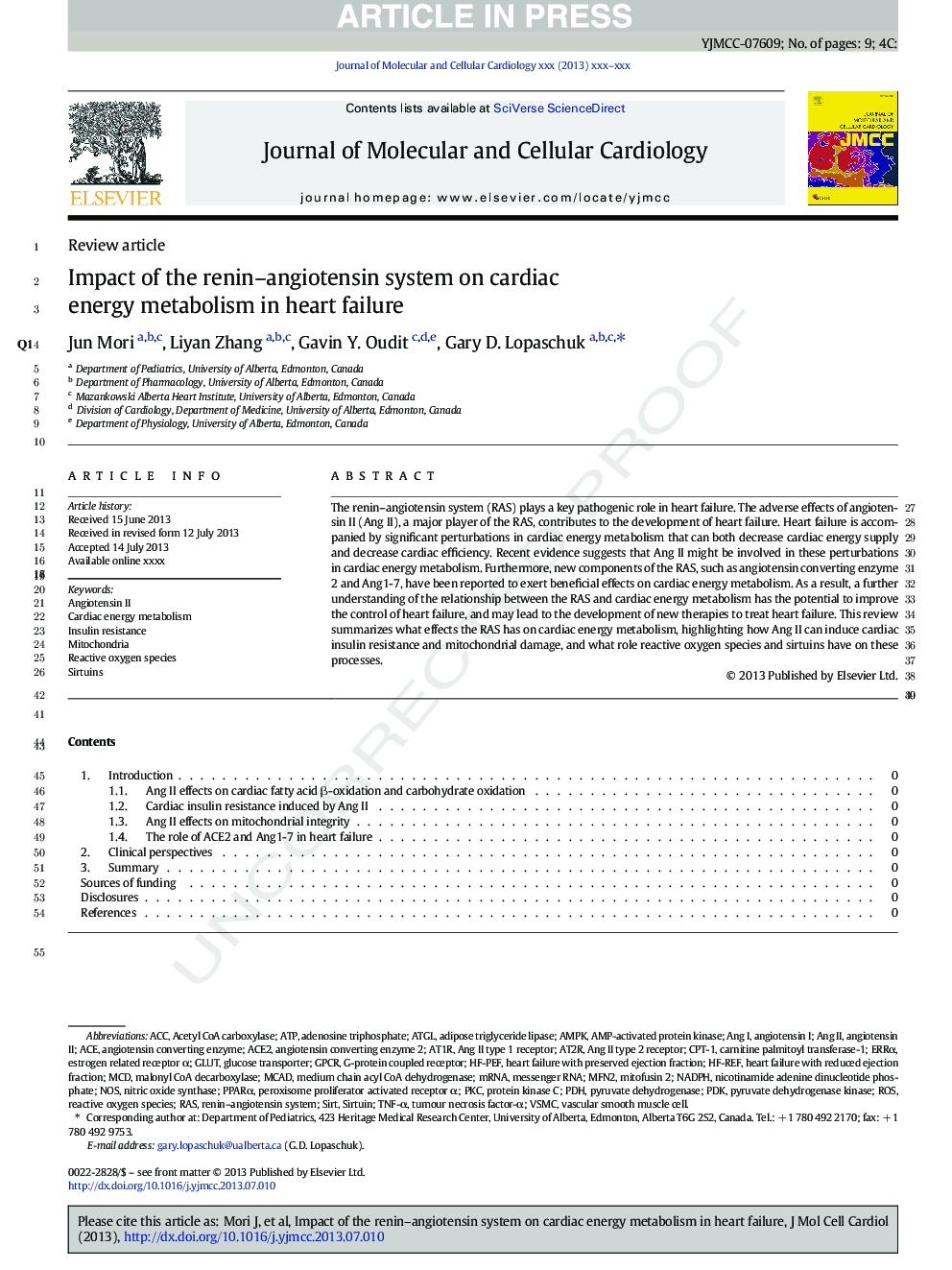| Article ID | Journal | Published Year | Pages | File Type |
|---|---|---|---|---|
| 8475034 | Journal of Molecular and Cellular Cardiology | 2013 | 9 Pages |
Abstract
The renin-angiotensin system (RAS) plays a key pathogenic role in heart failure. The adverse effects of angiotensin II (Ang II), a major player of the RAS, contributes to the development of heart failure. Heart failure is accompanied by significant perturbations in cardiac energy metabolism that can both decrease cardiac energy supply and decrease cardiac efficiency. Recent evidence suggests that Ang II might be involved in these perturbations in cardiac energy metabolism. Furthermore, new components of the RAS, such as angiotensin converting enzyme 2 and Ang1-7, have been reported to exert beneficial effects on cardiac energy metabolism. As a result, a further understanding of the relationship between the RAS and cardiac energy metabolism has the potential to improve the control of heart failure, and may lead to the development of new therapies to treat heart failure. This review summarizes what effects the RAS has on cardiac energy metabolism, highlighting how Ang II can induce cardiac insulin resistance and mitochondrial damage, and what role reactive oxygen species and sirtuins have on these processes.
Keywords
MCDERRαANG II type 2 receptorMCADHF-REFHF-PEFCPT-1AT2RGLUTAMPKAT1RGPCRACE2ACCACEAMP-activated protein kinaseG-protein coupled receptorAdenosine TriphosphateATPangiotensin converting enzymeAngiotensin Iangiotensin converting enzyme 2Angiotensin IIAtglacetyl coA carboxylaseGlucose transporterAng IIadipose triglyceride lipaseAng IHeart failure with preserved ejection fractionheart failure with reduced ejection fractioncarnitine palmitoyl transferase-1ANG II type 1 receptor
Related Topics
Life Sciences
Biochemistry, Genetics and Molecular Biology
Cell Biology
Authors
Jun Mori, Liyan Zhang, Gavin Y. Oudit, Gary D. Lopaschuk,
